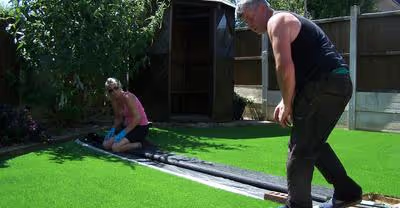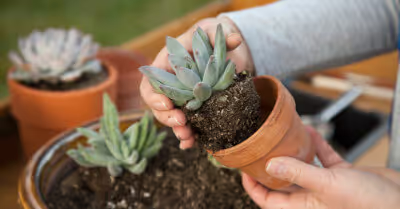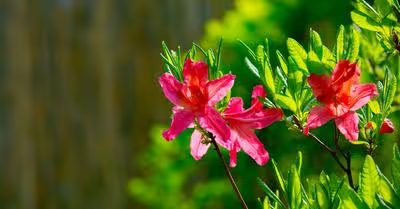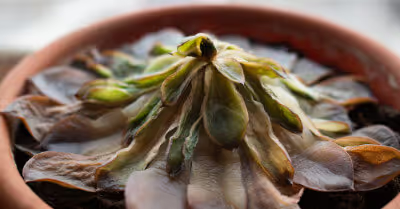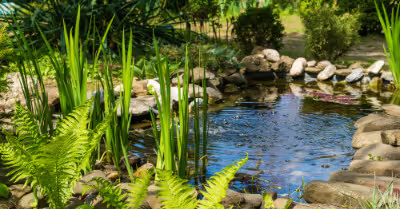Table of Contents
Probiotic Gardening
Probiotic gardening is a useful approach that any gardener may use. Because the soil in which your plants grow is the only source of nutrients, make sure the growth medium is rich in vitamins, minerals, and essential nutrients, including probiotics essential for producing healthy plants.
Many corporations with large-scale farms use herbicides, insecticides, and other compounds to protect against pests and illnesses. While these methods are effective, they may be exceedingly harmful to the soil, plants, and even our own bodies if we consume the product. We are presenting a healthier, more natural style of growing as a result of these issues.
Probiotic gardening focuses on fortifying soil with the highest quality vitamins, minerals, and nutrients to encourage plants to develop quicker while also naturally warding off pests. Soil, the "stomach" of the earth, needs probiotics for plants to grow, much as you do with probiotics contained in yogurt to boost your digestive system.
Probiotics are a good option for farmers mainly because they offer multiple benefits. They can help plants gain access to phosphorus in the soil. Phosphorus is a vital nutrient for root development.
They can transform nitrogen fumes trapped in the soil's microscopic pores into water-soluble nitrogen that our plants can absorb. Nitrogen fuels the development of leaves and branches. Bacteria in the soil also aids in the breakdown of organic debris, releasing nutrients that are essential for the health of your trees and plants.
How Do Soil-Based Probiotics Help?
There's still a lot of uncertainty around the role of bacteria in the soil. However, we know that these helpful microbes enjoy eating sweet things in the soil. Sugars and other high-energy carbon sources are their preferred dietary sources.
Fruit trees and other plants may be dirty, which is fortunate for us farmers. Osmosis allows them to absorb liquid nutrients through their roots. However, part of the sugary energy they make through photosynthesis seeps into the soil through their roots.
If there are beneficial bacteria in the soil around your tree's roots, they can consume the sugary carbohydrates released by your tree's roots and live, eat more, proliferate, and die. When they decompose, those nutrients are released back into the soil but in a form that is more accessible to your plants. As a result, the plants will now be able to benefit from the phosphorus, transformed nitrogen, and minerals that they previously lacked.
Gardening with probiotics is not only excellent for you and your plants, but it is also better for the environment. Water runoff is not hazardous in probiotic gardens; also, plants are less prone to illness.
Probiotic gardening is a useful approach that any gardener may use. Because the soil in which your plants grow is the only source of nutrients, making sure the growth medium is rich in minerals, vitamins, probiotics, and other nutrients are essential for producing healthy plants. It all begins with the expansion of the media. We suggest utilizing a peat-based, soil-free growth medium with perlite. The peat helps with wicking, while the perlite helps with aeration and drainage.
Types of Soil-based Probiotics
Various types of probiotics can be used in farming, such as composting, compost tea, and bokashi composting, just to name a few.
Compost Tea
When put to the soil or sprayed directly onto a plant's leaves, compost tea boosts microbial activity. It works in tandem with composting to help guarantee that your soil ecology has a varied range of microorganisms. With time, we discovered that adding more compost teas and plant teas resulted in even greater improvements in the garden's quality. The plants are in better shape, and the yields have increased.
Aerated compost tea is a very cost-effective technique to give a tiny bit of nutrients and a great amount of helpful elements directly to the region around the plants, including bacteria, fungus, and other beneficial microbes.
Bokashi Composting
Another method for decomposing diverse wastes is anaerobic composting. However, because the microbes do not require oxygen to function, it takes place beneath. Bokashi composting is a sort of anaerobic composting that allows you to compost a wide range of kitchen trash, including meat, dairy, and other items that aren't suitable for aerobic composting. Composting with bokashi is a time-consuming yet straightforward procedure.
Everything will be completely pickled and extremely acidic when you reopen the bucket. Before you may safely use the substance on plants without hurting roots, you must bury it in a fallow location for another two to four weeks.
Composting
Composting is a straightforward idea with a long history in organic agriculture and gardening. Composting is an important probiotic farming method that helps build up the soil, and farmers and gardeners across the country are employing it.
A lot of composting occurs in aerobic systems, which implies it takes place above ground. To break down waste and encourage bacterial development, germs require oxygen. Aerobic methods frequently employ bins in which the compost heap is turned using a pitchfork or shovel. There are also tumbling composters, which take only a few spins to convert your heap.
Composting is an environmentally responsible approach to dispose of kitchen trash as well as a useful use for livestock manure. It also gives your soil and crops much-needed nutrients and healthy microbes. However, you should never compost dairy products, oils, pet waste from cats or dogs or meats and bones in aerobic systems.
How to Improve Your Garden Using Probiotics
Microbes are already present in your garden if you utilize compost. Adding well-made compost to your probiotic gardening strategies will boost your results. When preparing a bed for planting, we've discovered that the ideal method to utilize compost in a probiotic garden is to dig in well-rotted compost. Add a layer of compost about two inches deep once you've started spraying the probiotic sprays on the plants and soil.
Every two to four weeks, spray the probiotic combination again. This will vary depending on the sort of growth you're seeing, the plants you're utilizing, and the combination you're using. As always, wash your produce after harvesting.
Make sure your plants are getting enough water as well. Because you don't want to wash the probiotic spray off the plants, alternate watering and spraying, allow it to soak for a day or two. Also, don't forget to water the plant's base and soil rather than the leaves. During summer days, avoid spraying the probiotic cocktail. Instead, spray the plants early in the morning or late at night.
Probiotics and Farming
Plant probiotics are a viable soil fertilizing option as well. It boosts crops while simultaneously safeguarding the environment, with no negative consequences. Synthetic pesticides and fertilizers can deplete the soil and suffocate, if not kill, vital bacteria that aid plant growth.
On the other hand, probiotic farming enriches the soil by reintroducing helpful bacteria that help it stay fruitful and even recover from past damage. Beneficial bacteria thrive, and crops benefit from a healthier growing environment when a range of probiotic farming strategies is used.
Probiotics boost the resilience of some plants to pests and diseases. Plants are better suited to deal with insect assaults when they are protected by a healthy probiotic ecosystem. Molds, illness, infections, and other pressures become less of a problem for them. More importantly, natural resources give this protection. Liquid runoff is non-toxic, and hazardous substances often found in commercial items do not pollute the environment.
While compost tea is a great way to improve your soil, you can also use other natural components.
Various soil amendments provide additional food to your microbe population before, during, and after a growing season, which is an important aspect of probiotic farming.
Tilling in new amendments improves soil structure and ensures adequate nutrient levels for the forthcoming growing season. Microorganisms have something fresh to break down and supply to the crops when amendments are added throughout the growing season. Bone meal, blood meal, worm castings, and rock dust are some of the soil amendments you may use to create soil or spore-based probiotics.
Recent Articles



